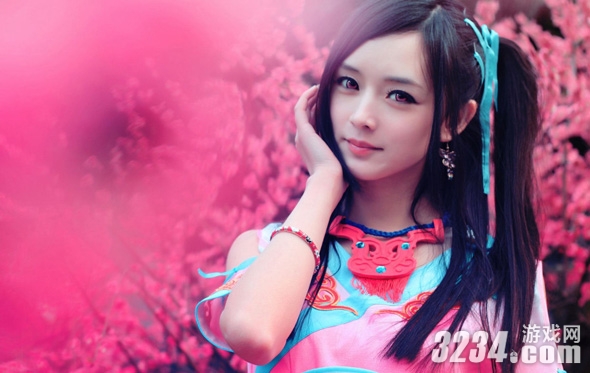The Myth of Chang O, Chinese Goddess of the Moon

The Greeks and Romans were not the only ones to worship ancient gods and goddesses. While their interpretations may be more famous than some other cultures, they are by no means any more beautiful.
The Orient is also ripe with myths and legends of gods and goddesses. Their stories are often a mixture of sadness, great strength, and unparalleled beauty. Such is the story of China's Goddess of the Moon - Chang O.
Although I found several versions of this story, some very close in nature and others totally different, I chose to share this version because it touched me personally. I hope it will also touch you.
As with all good stories, this one two begins with "once upon a time." Chang O wasn't always the goddess of the moon. In fact she started her life as a mortal being happily married to one of the world's greatest archers.
Her husband Hou Yi served the emperor well, using his brute strength and archery skill to rid the world of ferocious animals and otherwise unstoppable enemies. Yi was a faithful husband who loved his wife, Chang O with all of his heart. However, he feared her inquisitive nature would eventually lead to her ruin. So he was often tempted to squelch it in every way that he could.
Now, in the days of Chang O and Hou Yi there were multiple suns in the sky. Although the suns took turns circling the earth, many people feared they might some day join together and turn into a great ball of fire that would destroy the earth and all that lived there.
With the blessings of the emperor that he served, Yi used his archery skills to knock nine of the ten suns out of the sky. The task done, the emperor rewarded Yi with the elixir of life, which granted him immortality. However, he warned the warrior not to take the pill until he had cleansed both his body and soul in preparation for the transition.
While Yi prepared himself he hid the pill away from Chang O's inquisitive eyes. But alas, Chang O wasn't to be deprived. She saw where her husband had hidden the pill. One day while Yi was gone from the house; she took it out of its hiding place and quickly swallowed it.
Chang O soon felt herself becoming lighter than air until she floated away from earth into the heavens. Yi caught a glimpse of his wife just before she took flight and realized what she had done. He attempted to follow her but the force of the wind forced him back to earth.
Chang O continued flying until she reached the moon. When she landed there, with a thud, it dislodged half of the pill she had taken. She sent it on the wings of bird to deliver it to her husband in hopes that he might follow her. But the bird got lost along the way and with it went Chang O's hopes for a reunion with her husband. All alone on the moon, Chang O pined for her mate.
Yi too was lonely without his beloved wife. The other gods and goddesses took pity on the couple. They told Yi to build her a magnificent palace of cinnamon wood for Chang O and to place inside it a beautiful white rabbit to keep her company in her solitude.
In recognition of his great service to mankind, Yi was also allowed to build a palace for himself on the last remaining sun. There he could live in equal solitude. Thus the sun and moon came to symbolize the Ying and Yang, or polar opposites of life.
Although for most the year, the couple lived apart, one day each month was set aside just for them to be together. It is said that when the moon is full, the lovers are so happy to be together again that their love literally lights up the night sky with a glorious full moon.
To this day, every September, the Chinese honor Chang O with a moon festival. It is a celebration of womankind and of family. People celebrate the time by baking moon cakes for those that they love. Some claim these special cakes have supernatural powers that can change history.
One of their most famous tales is of a young rebel named Liu Fu Tong. It is said that he used the moon cakes to help gather people together to rebel against the oppressive reign of the Yuan dynasty.
How would moon cakes help him overthrow a government you might ask? He hid notes to those who joined with him inside of the cakes that were delivered. These notes told the rebels the date and time to join him in his attack on the palace. Tong's revolution was successful and he credited the moon goddess for her indirect role in freeing the Chinese people.
As with many myths, the ending might not be as happy as we would wish. However, there may be some truth to the saying that "absence makes the heart grow fonder." For when the moon is full and brightly lit against the black velvet night it is a testament to the power of true love.









Comments